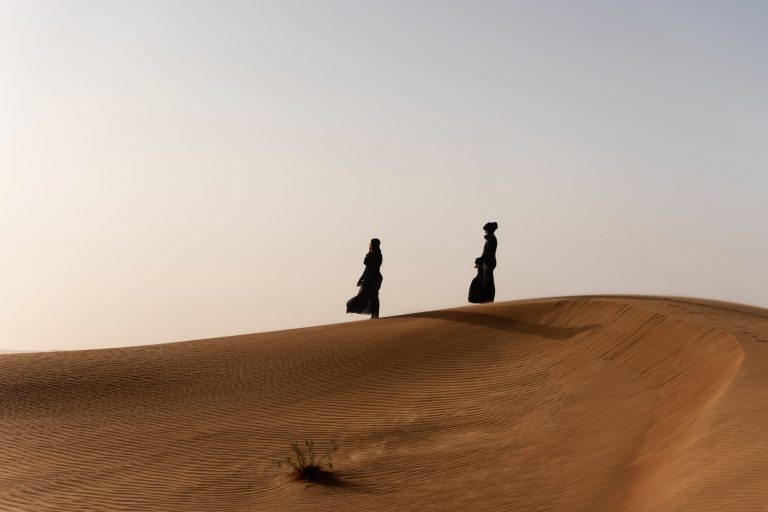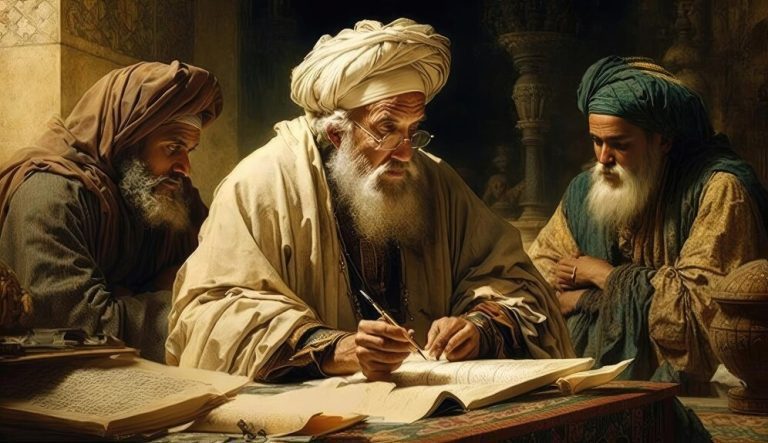Ramadan: A Month of Spiritual Reflection and Renewal
Embrace the Divine Blessings and Transformative Power of Ramadan
Experience the profound Ramadan A Month of Spiritual Reflection and Renewal, a sacred month of fasting, prayer, and self-reflection in Islam. Discover the transformative power of Ramadan as it offers believers an opportunity for spiritual renewal, growth, and connection with the Divine.
Introduction:
As the crescent moon heralds the arrival of Ramadan, Muslims around the world embark on a journey of spiritual reflection and renewal. This sacred month holds a special place in the hearts of believers, offering an opportunity to deepen their connection with Allah, seek forgiveness, and rejuvenate their souls. In this emotional exploration, we delve into the essence of Ramadan, celebrating its blessings and transformative power in the lives of millions.

Ramadan: A Month of Spiritual Reflection and Renewal
Embracing the Blessings of Ramadan
A Sacred Time:
Ramadan is a sacred time in the Islamic calendar, marked by fasting, prayer, and acts of charity. It is a month of spiritual significance, during which believers seek closeness to Allah and strive to purify their hearts and souls.
Divine Blessings:
During Ramadan, Muslims believe that the gates of heaven are open, and the mercy of Allah is abundant. It is a time of immense blessings, where prayers are answered, sins are forgiven, and hearts are filled with gratitude and humility.
Opportunity for Transformation:
Ramadan offers believers an opportunity for spiritual transformation and growth. Through fasting, prayer, and self-reflection, Muslims seek to strengthen their faith, overcome their shortcomings, and cultivate virtues such as patience, gratitude, and compassion.

The Power of Fasting and Prayer
Physical and Spiritual Cleansing:
Fasting during Ramadan is not only a physical practice but also a spiritual one. It allows believers to cleanse their bodies and souls from impurities, both inward and outward, and to develop self-discipline and self-control.
The power of fasting is in its ability to strip away the superficial, to silence the noise of our daily lives and reveal the raw, unadulterated essence of our being. When we abstain from food and drink, we are reminded of our vulnerability, our dependence on something greater than ourselves. This voluntary act of deprivation is a powerful statement of faith, a testament to our commitment to spiritual growth and self-discipline. Through fasting, we learn to conquer our desires, to find strength in our weakness, and to appreciate the blessings we often take for granted.
Connection with Allah:
Prayer plays a central role in Ramadan, serving as a means of communication with Allah and a source of spiritual nourishment. Through the five daily prayers and special night prayers such as Taraweeh, believers strengthen their connection with the Divine and seek guidance and forgiveness.
Fasting and prayer are potent forces that transcend the mundane, connecting us to a higher realm of spiritual awakening and inner strength. The power of fasting and prayer lies not just in their physical manifestations, but in the deep emotional and spiritual transformations they ignite within us. They are more than mere rituals; they are profound journeys into the depths of our souls, avenues through which we discover our true selves and our relationship with the divine.
Prayer, on the other hand, is the language of the heart, a direct line to the divine. The power of prayer lies in its ability to transform our inner landscape, to bring peace to our restless minds and comfort to our aching hearts. It is through prayer that we express our deepest longings, our fears, and our gratitude. In moments of solitude, when our words become whispers, we feel the presence of something greater, a divine embrace that reassures us we are never alone.

Community and Solidarity:
Ramadan fosters a sense of community and solidarity among Muslims worldwide. Breaking the fast together, sharing meals with family and friends, and performing acts of charity create bonds of brotherhood and sisterhood, reinforcing the importance of compassion and generosity.
Self-Reflection and Renewal
Introspection and Evaluation:
Ramadan encourages believers to engage in deep self-reflection and introspection, examining their thoughts, actions, and intentions. It is a time to assess one’s spiritual state, seek forgiveness for past transgressions, and make resolutions for positive change.
Renewal of Faith:
For many Muslims, Ramadan serves as a time of spiritual renewal and recommitment to their faith. It offers an opportunity to strengthen their relationship with Allah, deepen their understanding of Islamic teachings, and reaffirm their commitment to living a righteous and virtuous life.
Gratitude and Generosity:
Ramadan instills a sense of gratitude and generosity in the hearts of believers. Through acts of charity, kindness, and compassion, Muslims express gratitude for the blessings they have received and share their resources with those in need, embodying the spirit of Islam’s teachings.
The union of fasting and prayer creates a synergy that amplifies their individual effects. Together, they cleanse our spirits, heighten our awareness, and draw us closer to the divine. They teach us humility and gratitude, fortifying us against the trials of life. The power of fasting and prayer lies in their ability to transform pain into purpose, to turn suffering into strength, and to elevate our souls to realms of peace and enlightenment.

Frequently Asked Questions (FAQs):
What is the significance of fasting during Ramadan?
Fasting during Ramadan holds great significance in Islam as it teaches self-discipline, empathy for the less fortunate, and spiritual purification. It is a means of seeking closeness to Allah and gaining a deeper understanding of the plight of the needy.
How does Ramadan foster spiritual growth?
Ramadan fosters spiritual growth through its emphasis on prayer, fasting, and acts of charity. By engaging in these practices, believers strengthen their connection with Allah, cultivate virtues such as patience and gratitude, and strive for personal transformation and growth.
What is Laylat al-Qadr and why is it important?
Laylat al-Qadr, or the Night of Decree, is considered the holiest night of the year in Islam. It commemorates the night when the Quran was first revealed to the Prophet Muhammad (peace be upon him) and is believed to be a night of immense blessings, forgiveness, and mercy.
How do Muslims celebrate Eid al-Fitr?
Eid al-Fitr, or the Festival of Breaking the Fast, marks the end of Ramadan and is celebrated with prayers, feasting, and acts of charity. It is a joyous occasion where Muslims come together to express gratitude to Allah for the blessings of Ramadan and to celebrate with family and friends.
What are some tips for making the most of Ramadan?
To make the most of Ramadan, believers are encouraged to prioritize acts of worship, such as prayer, Quranic recitation, and supplication. They should also strive to cultivate virtues such as patience, gratitude, and compassion, and to engage in acts of charity and service to others.
How can one maintain spiritual momentum after Ramadan?
To maintain spiritual momentum after Ramadan, believers should continue to engage in acts of worship and self-reflection, such as regular prayer, Quranic study, and reflection on their spiritual journey. They should also strive to incorporate the lessons learned during Ramadan into their daily lives, seeking to embody the values of faith, compassion, and humility.
Conclusion:
As Ramadan draws to a close and the crescent moon gives way to Shawwal, Muslims emerge from this sacred month with hearts full of gratitude, spirits rejuvenated, and souls purified. Ramadan serves as a reminder of the transformative power of faith, the importance of self-reflection, and the blessings of community and solidarity. May the lessons learned and the spiritual growth achieved during Ramadan continue to guide and inspire believers throughout the year.







